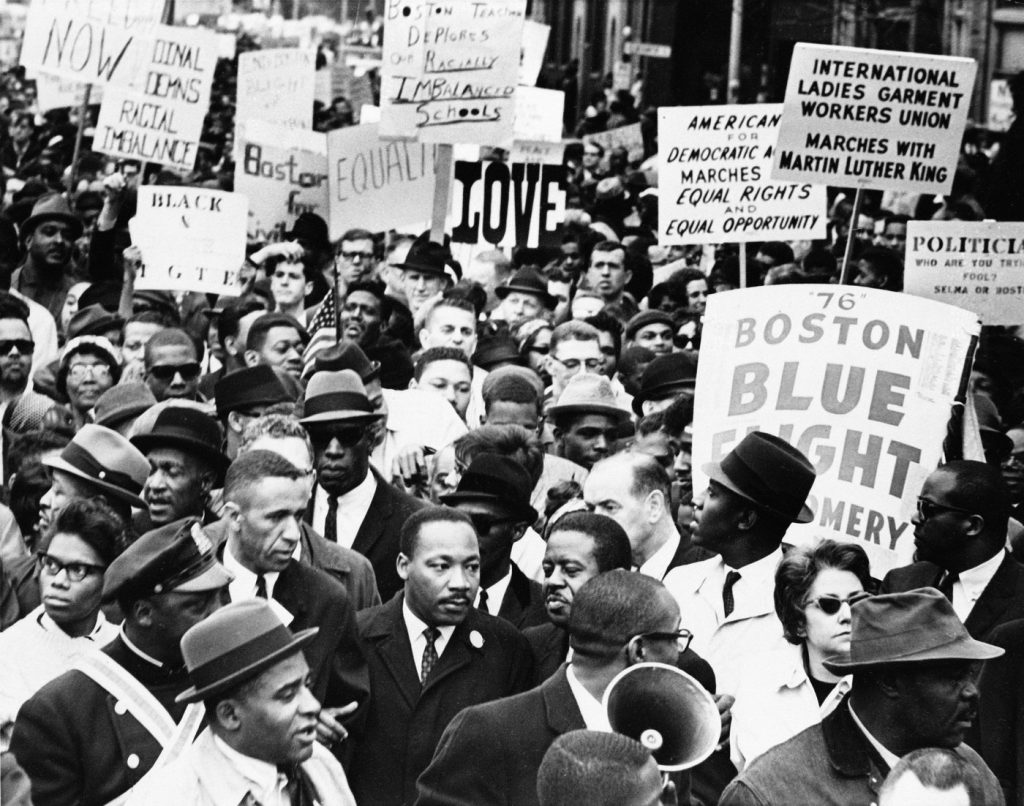BOSTON (AP) — Wayne Lucas, a Black teenager who participated in the historic 1965 Freedom Rally in Boston, recalls the powerful moment when he joined over 20,000 people to hear Rev. Martin Luther King Jr. speak against the city’s segregated school system and entrenched poverty in marginalized communities. Sixty years later, Lucas will return to Boston Common to commemorate this significant anniversary, where he predicts that President Donald Trump’s approach to race and immigration will dominate discussions.
Lucas, now a social activist and retired postal worker, expressed his concerns about the various forms of racism and fascism that he believes are manifesting in contemporary America. He emphasizes the vital importance of community engagement, urging people to participate actively in social justice movements as they reflect on the ongoing struggles faced by marginalized communities.
The original rally in 1965 marked a pivotal moment for the civil rights movement in the Northeast. King, who had deep ties to Boston—having earned a doctoral degree from Boston University and served as an assistant minister at the Twelfth Baptist Church—used his time in the city to inspire local leaders. During his speech, King encouraged Boston to take the lead in desegregating schools and improving economic opportunities for Black residents, while acknowledging the city's unique challenges compared to other areas in the South.
The Freedom Rally came on the heels of significant civil rights legislative progress, following the signing of the Civil Rights Act in 1964 and just months before the Voting Rights Act of 1965. In the lead-up to the Boston event, King and other civil rights leaders had participated in the Selma to Montgomery march, which highlighted the urgent need for voting rights and social justice.
At the 60th-anniversary rally, King's eldest son, Martin Luther King III, is set to be the keynote speaker. He is expected to address ongoing issues that still affect communities of color, such as access to good jobs, adequate healthcare, and affordable housing. His remarks are particularly relevant in the current political climate marked by resistance to diversity, equity, and inclusion (DEI) initiatives spearheaded by the Trump administration.
The Trump administration has actively challenged DEI programs across various sectors, implementing policies that critics argue marginalize underrepresented communities. This includes investigations into colleges accused of discriminatory admissions practices and measures that inhibit federal support for organizations dedicated to diversity, such as the Museum of African American History in Boston, which recently faced the termination of a $500,000 federal grant.
Speaking to the Associated Press, Martin Luther King III highlighted the importance of acknowledging historical injustices to foster a more equitable society. He noted that the narrative often perpetuated by opponents of diversity—that unqualified people of color are taking jobs from whites—is deeply flawed. King argues that the reality for many Black Americans has been enduring exclusion from opportunities rather than their unworthiness.
Imari Paris Jeffries, the president and CEO of Embrace Boston, which is organizing the rally, echoed these sentiments by emphasizing the ongoing need for discourse surrounding democracy. He referred to the “promissory note” that King alluded to in his famous "I Have a Dream" speech, asserting that the fundamental rights to public education, housing, and health remain “out of reach” for many.
As Boston prepares to reflect on its past and confront its present, the upcoming rally provides a crucial platform for community engagement and activism, spotlighting the ongoing vulnerabilities faced by marginalized populations in the context of broader social and political challenges.











